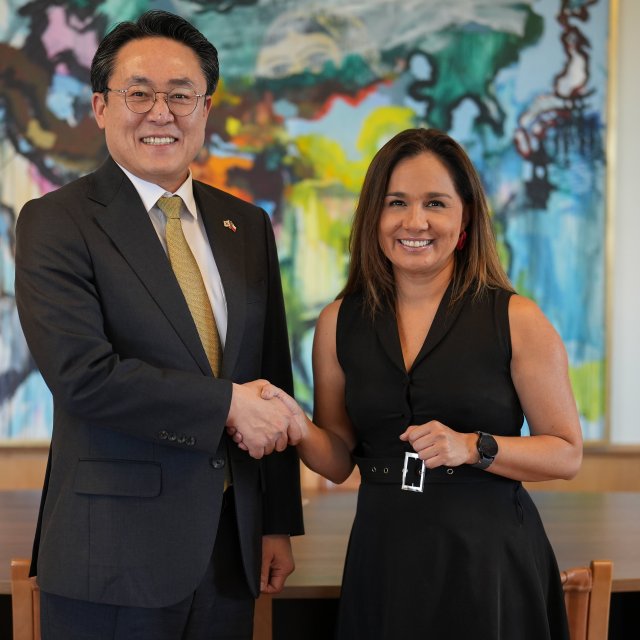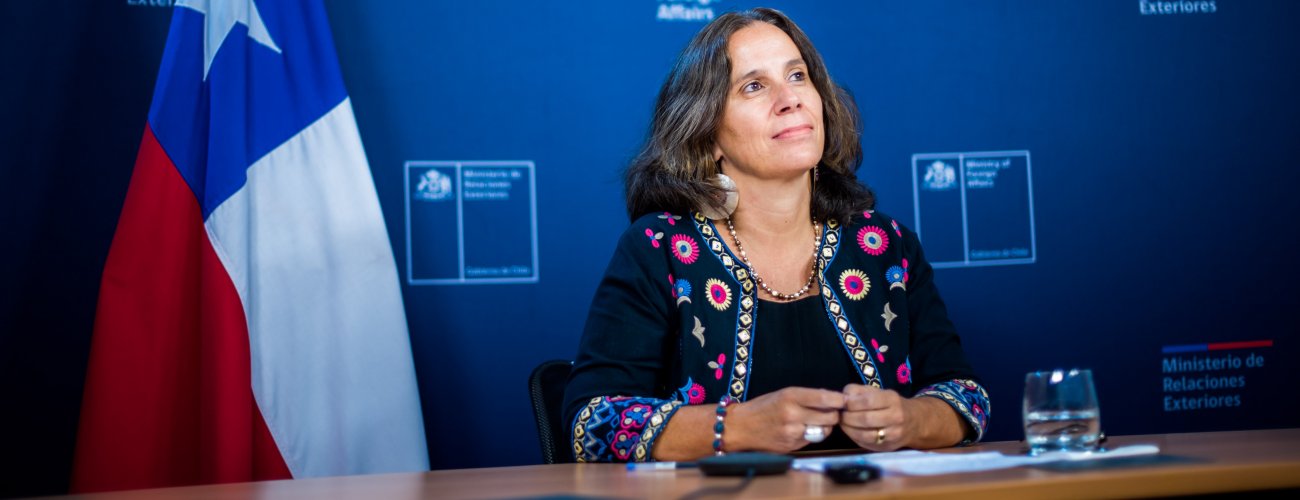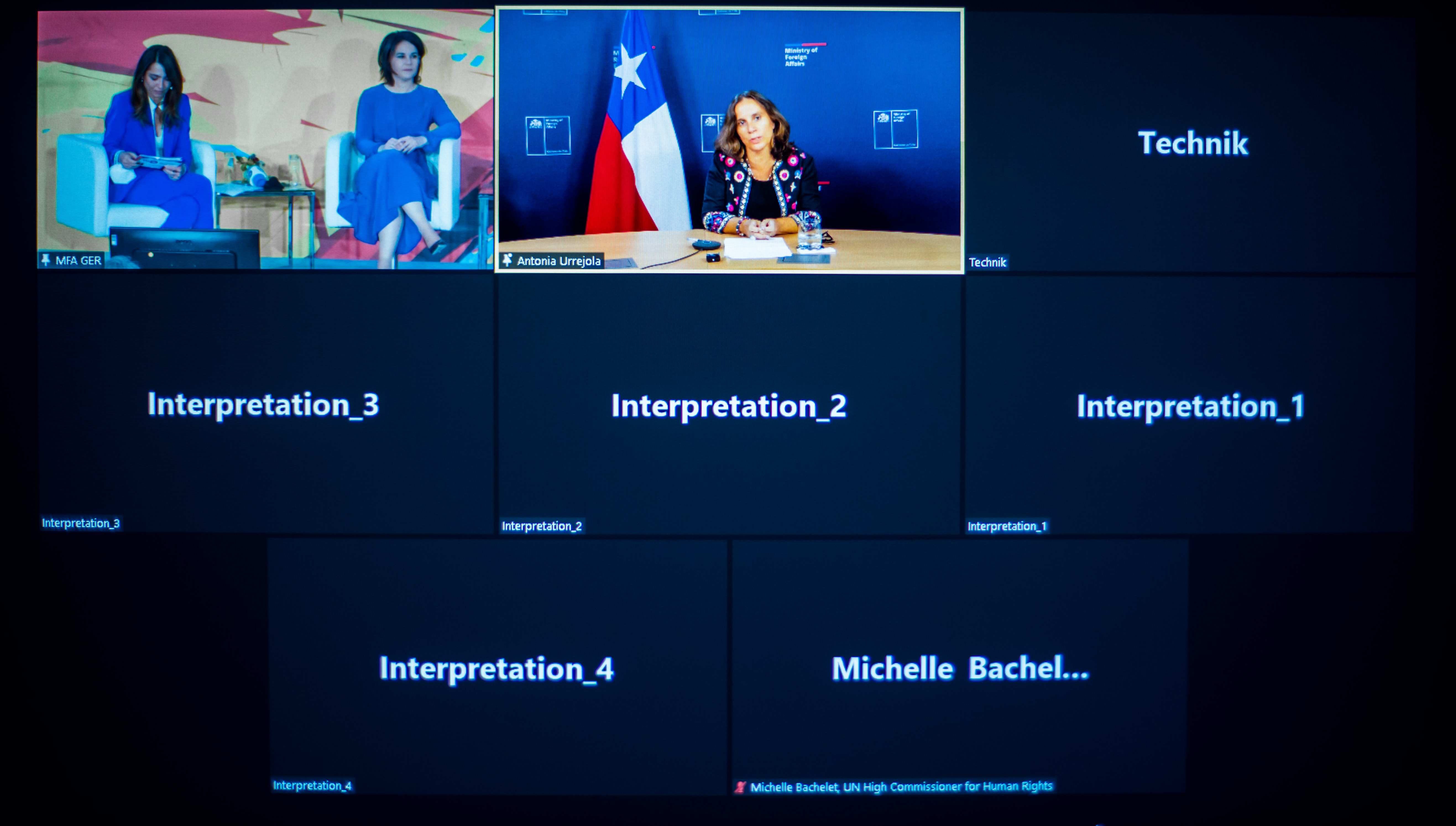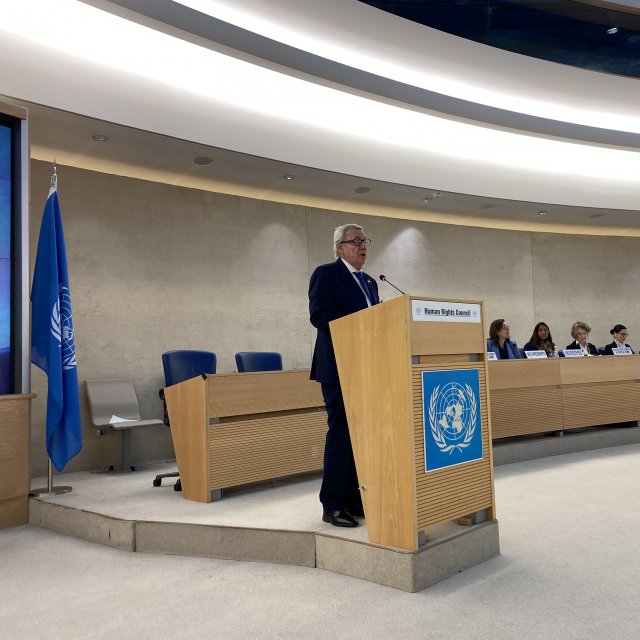 Thursday, February 27th 2025
Undersecretary meets with the Minister of Oceans and Fisheries of the Republic of Korea
Thursday, February 27th 2025
Undersecretary meets with the Minister of Oceans and Fisheries of the Republic of Korea
Foreign Minister Antonia Urrejola: "The development of a feminist foreign policy will be a distinguishing hallmark and a vanguard element of our diplomacy".

Today, the Minister of Foreign Affairs, Antonia Urrejola, participated in the inauguration of the "Unidas Week 2022", an initiative of the United Women's Network between Latin America, the Caribbean and Germany, which aims to promote dialogue on the challenges of the gender agenda in regional foreign policy.
In the virtual meeting, Chancellor Antonia Urrejola thanked the German Foreign Minister, Annalena Baerbock, for her invitation and made a diagnosis of the situation of women in Latin American chancelleries, stressing that the problem is even more acute when factors such as economic position, ethnic origin, social and cultural capital are taken into account.
"Foreign policy agendas will continue to be incomplete if they do not take into account the plural society they represent. In this sense, the generalized reality of Latin American women diplomats shows a serious difficulty in incorporating themselves effectively and increasingly in the processes of design, development and implementation of foreign policy," said the minister.
Commitment to a feminist foreign policy
During her speech, and with a focus on advancing towards a feminist foreign policy, the Chilean Foreign Minister stressed that our country is beginning to experience transversal changes in which we are all called upon to take part. "The development of a feminist foreign policy (PEF) will be a hallmark and vanguard element of our diplomacy, consistent with Chile's commitment to human rights and the parity of the Constitutional process underway, and with the participation of women on equal terms, free from violence and discrimination," said Minister Antonia Urrejola.
Along these lines, she added, concrete actions will be taken to "mainstream the diverse and heterogeneous approach to gender as a norm at the head of the Ministry of Foreign Affairs, and not as a matter to be delegated to a small department".

Incorporating women in decision-making processes at all political levels, as well as strengthening visibility and transparency in favor of gender, together with introducing regulatory and normative changes to adapt the working language in the Foreign Ministry and transform it into an inclusive and non-discriminatory one, will also be central to this transformation.
In the multilateral field, Foreign Minister Antonia Urrejola stated that the "Women, Peace and Security" Agenda will continue to be implemented, work will continue to reform actions to eradicate violence against women and girls within the framework of the work of the Committee on the Elimination of Discrimination against Women (CEDAW) and the promotion of sexual and reproductive rights will be promoted, with priority given to the rights of LGBTIQ people.
" There is no doubt that we have defined an ambitious agenda, but it is part of the hallmark of the government of President Gabriel Boric. Moving institutional and cultural frontiers requires not only will, but also concrete political actions", concluded the Secretary of State.
Related articles
 Thursday, February 27th 2025
Undersecretary meets with the Minister of Oceans and Fisheries of the Republic of Korea
Thursday, February 27th 2025
Undersecretary meets with the Minister of Oceans and Fisheries of the Republic of Korea
 Monday, February 24th 2025
Minister van Klaveren reaffirms Chile's commitment to human rights and gender equality
Monday, February 24th 2025
Minister van Klaveren reaffirms Chile's commitment to human rights and gender equality









